Severe reactions linked to Pfizer
The Pfizer vaccine carries more risks than the AstraZeneca vaccine, an expert says, as he urges Australians to take what they can get.
Australians should ditch their prejudice against the AstraZeneca vaccine because the Pfizer shot also carries two key risks that have not been as well publicised, a leading vaccine expert says.
The Immunisation Coalition’s Professor Robert Booy is urging Australians to have whatever vaccine is available right now because of “clear and present danger” of the virus circulating in the community.
There were two risks from the Pfizer vaccine, the University of Sydney vaccine expert said.
Pfizer causes the severe allergic reaction anaphylaxis in one in 100,000 people leading to difficulty breathing and swelling of the face and airways, he said.
“It’s now become more and more clear that mRNA vaccines, especially Pfizer, have a one and 100,000 risk of myocarditis or pericarditis, inflammation of the heart muscle or lining of the heart,” he said.
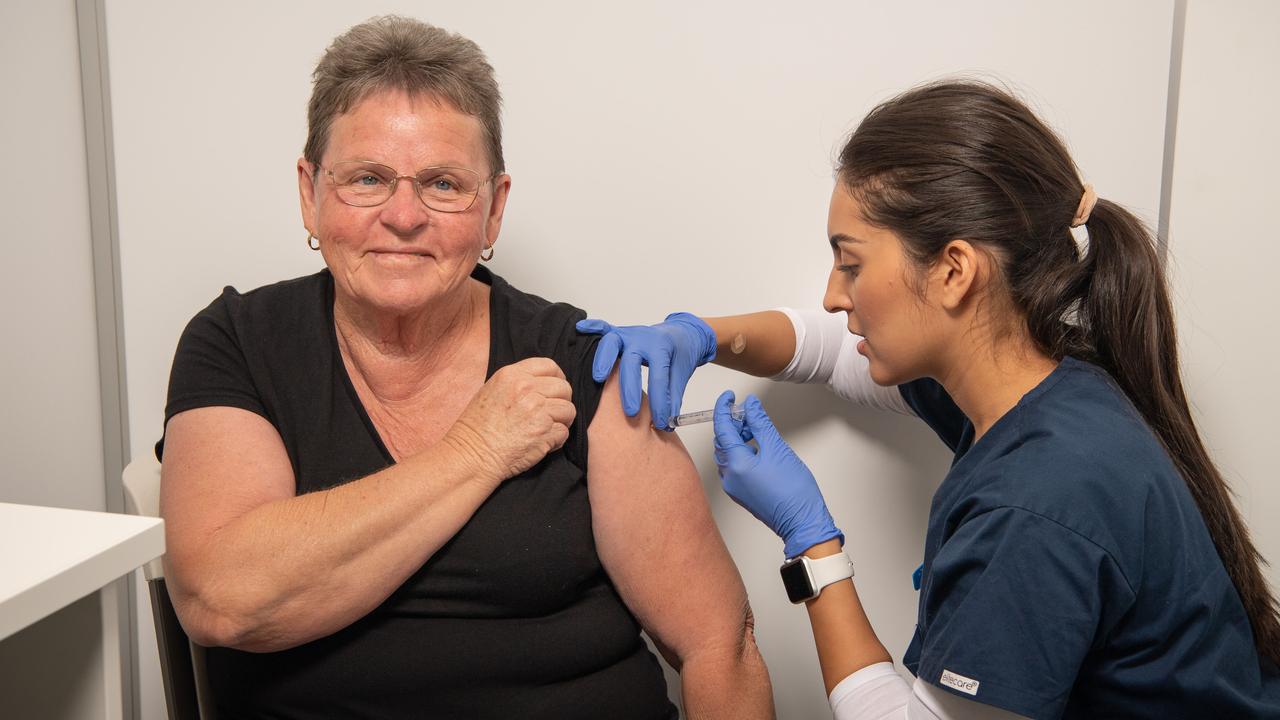
This was not insignificant and “there will be some deaths that will occur from that,” he said.
“That’s two marks against Pfizer and one against AstraZeneca,” he said referring to the rare blood clot syndrome from the AstraZeneca shot.
People aged 50-59 had a 2.7 in 100,000 risk of developing these blood clots and a one in two million risk of dying from them, he said.
For those aged 40-49 the risk of the blood clots is 5 per 100,000.
“I’m saying very clearly that it’s a good idea to get vaccinated, and get the vaccine that’s available to you, you don’t have to worry about which one it is,” he said.
With Covid spreading around the country Australians are now facing a “clear and present danger” and should get vaccinated now with whatever vaccine was available rather than wait until more supplies of Pfizer arrive in September.
The warning comes as experts are urging the government’s Australian Technical Advisory Group on Immunisation (ATAGI) expert advisory committee on immunisation to consider bringing forward the second dose of the AstraZeneca vaccine from 12 to 8 weeks as happened in the UK to combat the Delta variant.
New evidence that mixing and matching vaccines produces a stronger immune response could also be on the agenda.
Research from the UK published in The Lancet this week showed people who had AstraZeneca as their first jab had a stronger immune response when they received Pfizer as their second shot.
It is the third study to show mixing and matching vaccines could be a good strategy.
ATAGI’s advice on this states Australians must get the same vaccine for both doses but it has not been updated since February this year.
Confusion is mounting about whether people aged under 60 should get the AstraZeneca vaccines.
Prime Minister Scott Morrison said on Monday people aged under 40 could now get it from their GP’s, but Health Minister Greg Hunt and the Australian Medical Association said Pfizer was preferred for the under 60s.
State premiers said on Tuesday their state vaccination hubs would not be giving the AstraZeneca vaccine to people aged under 60.
GP FURY AS AUSSIES CONFUSED BY VACCINE PROGRAM CHANGES
Doctors are fuming their phone lines have been overloaded with young people trying to book AstraZeneca appointments after last minute changes allowing the under 60s to get the jab.
The Royal Australian College of General practitioners (RACGP) reprimanded Prime Minister Scott Morrison for failing to give them any information about the changes made late Monday night.
And she said without more vaccine supplies doctors were unable to meet demand.
“The nation’s general practices had no warning of the announcements made last night and are now scrambling to figure out what this means for our patients,” RACGP president Dr Karen Price said.
“Phones are ringing off the hook at general practices across the country with people trying to book in, but general practices are not yet armed with the advice needed to implement this change in eligibility,” she said
On Monday, national cabinet agreed anyone aged between 18 and 39, who is not currently eligible for a Pfizer vaccine, could seek an AstraZeneca vaccination from their GP.
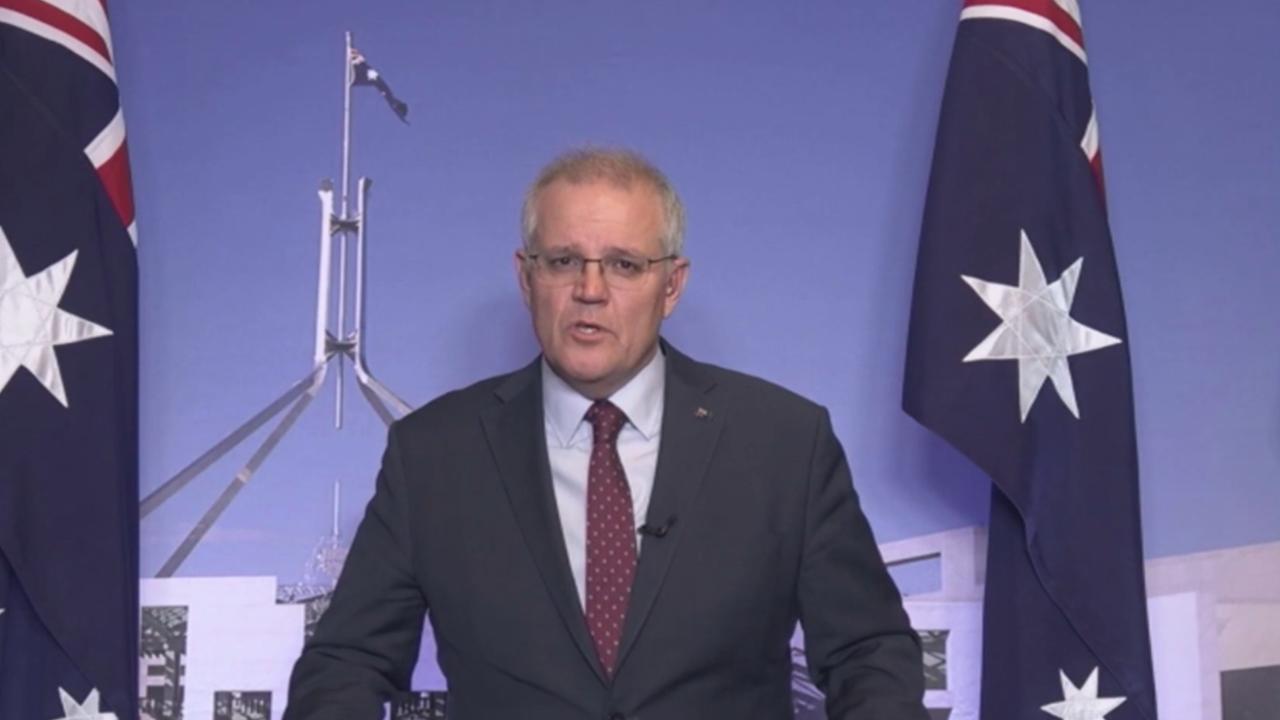
This is even though previous advice said Pfizer was the preferred vaccine for this group because the risk of rare blood clots from the AstraZeneca jab is higher in young people.
To receive the AstraZeneca vaccine, patients must weigh up the risks and benefits and provide informed consent.
The Government also announced that a no-fault professional indemnity scheme for the nation’s GPs and other vaccine providers.
Dr Price said that general practice needed notice when changes were made.
“Unfortunately, this is not the first time this has happened to general practice,” she said.
“It occurred with the launch of the vaccine booking site and the multiple changes made to age eligibility for the AstraZeneca vaccine. It makes the job of GPs that much harder when we are trying to get as many of our patients vaccinated as quickly as we can,” she said.
It was unfair to force doctors to explain to patients changes they had not even been notified about as well as managing those who are taking their frustrations out on receptionists who, she said.
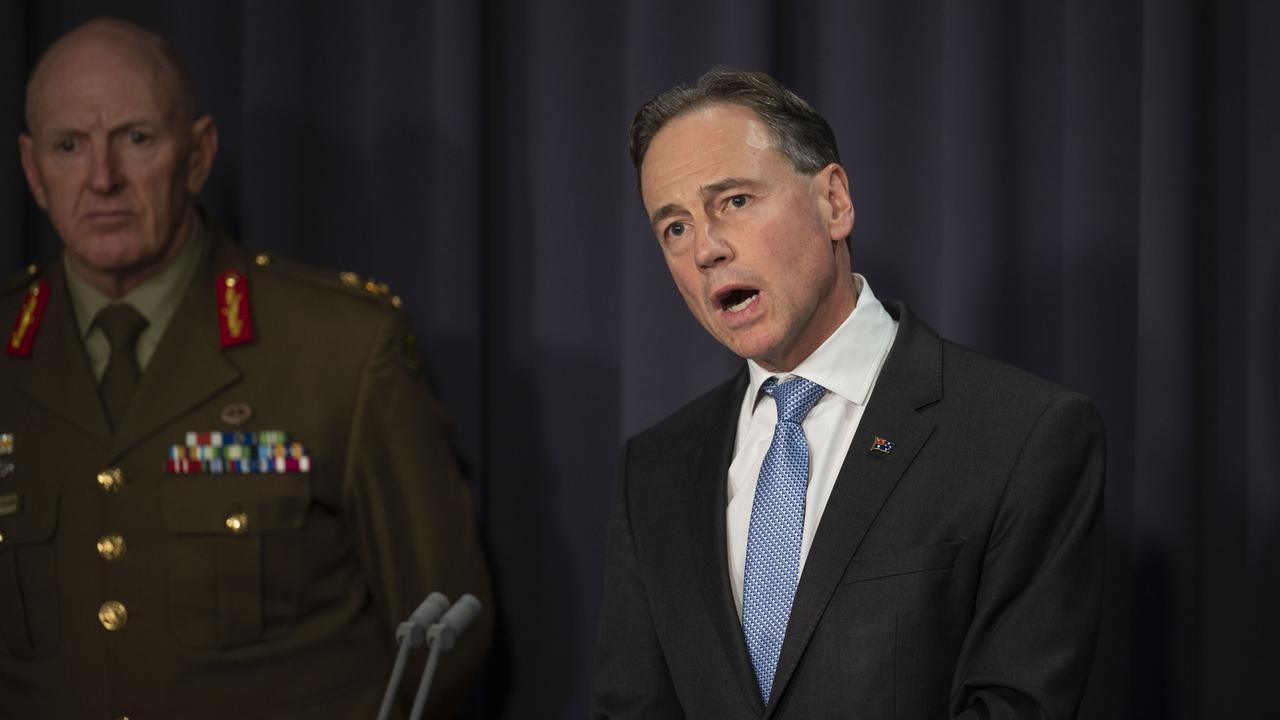
The government must immediately clarify how the changes would work and make sure there was enough vaccine on hand for doctors to meet demand, she said.
GP’s were not the only ones confused about the vaccine rollout changes.
On Monday night Mr Morrison said anyone under the age of 40 “if they wish to go and speak to their doctor and have access to the AstraZeneca vaccine, they can do so”.
However Health Minister Greg Hunt said on Tuesday “Pfizer is the preferred vaccine for people under 60”.
“The clinical advice of ATAGI (Australian Technical Advisory Group on Immunisation) has not changed,” he said.
However, Mr Hunt said it had always been the case people aged under 60 could ask their GP for an AstraZeneca jab.
NEW CALLS FOR SECOND DOSE OF ASTRA
Experts are urging the government to bring forward the second dose of the AstraZeneca jab from 12 weeks to eight as authorities scramble to contain the nationwide Covid-19 outbreak totalling 130 cases.
It comes after doctors warned of an oversupply of the AstraZeneca jab, some of which is approaching its used-by date.
Britain made the move to speed up the second dose seven weeks ago as it sought to combat the highly infectious new variant.
In Australia, advice from the Australian Technical Advisory Group on Immunisation (ATAGI) and the Therapeutic Goods Administration states the second dose can only be brought forward in the case of “imminent travel”, “cancer chemotherapy, major elective surgery” or “anticipated risk of COVID-19 exposure”.
By contrast, Britain’s National Health Service acted when clinical studies found a single dose of either the Pfizer or AstraZeneca vaccines was only 33 per cent protective against the Delta variant.
Health Minister Greg Hunt revealed on Monday while over 4.15 million Australians had been given their first doses of AstraZeneca only around 450,000 people had received two doses.
Protection against Delta rises to 60 per cent after two doses of AstraZeneca’s jab and Pfizer is 88 per cent protective against the variant after two doses.
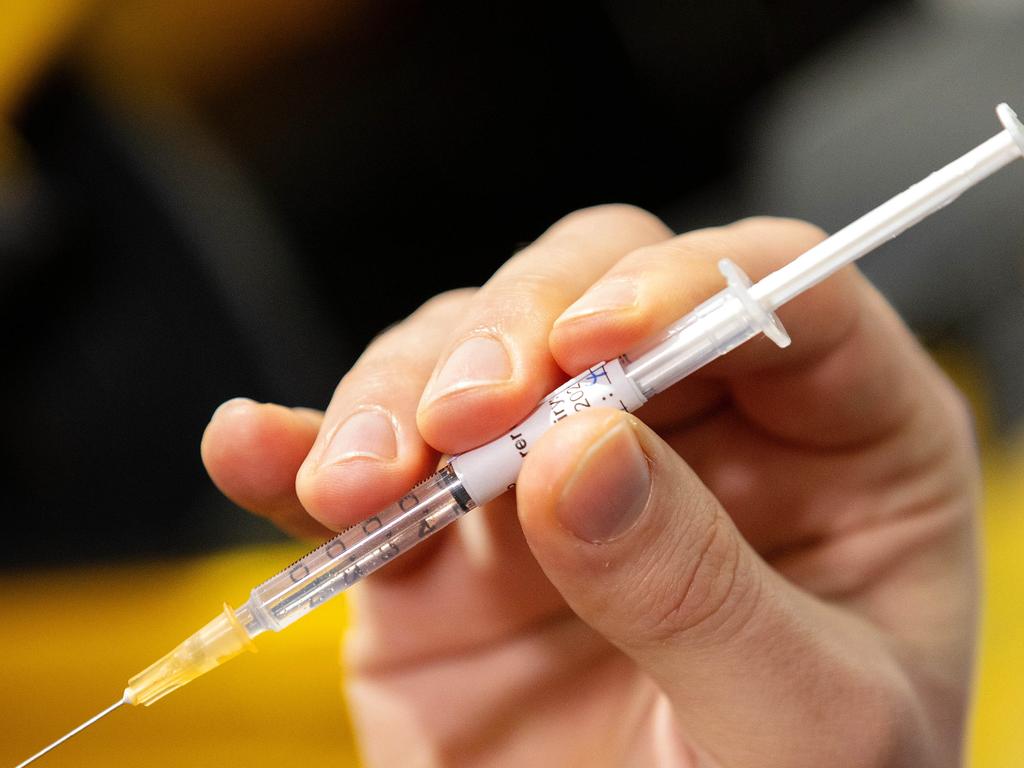
Immunisation Coalition chair Professor Robert Booy said he had been asking ATAGI to consider the move for weeks.
“They need to make a statement as to why it isn’t reasonable,” he said.
“If you think you’re going to be exposed then eight to 11 weeks is a perfectly reasonable time to get boosted.”
Senior Vaccine Adviser to UNICEF Australia Chris Maher, who helped run the World Health Organisation program to eradicate polio, also backed the move.
“My instinct automatically says two months is probably a long enough interval between two doses of vaccine to be able to get a decent effect. So, yeah, I’d be very sympathetic with that, not least because, like you, I’m waiting for my second dose,” he said.
Former Australian Medical Association (AMA) president Dr Mukesh Haikerwal, who is running a major vaccination centre in Melbourne is also calling for the second AstraZeneca shot to be brought forward.
“There’s a couple of bits of logic to that. One is that obviously you get people through more quickly, and we get the level of protection up,” he said.
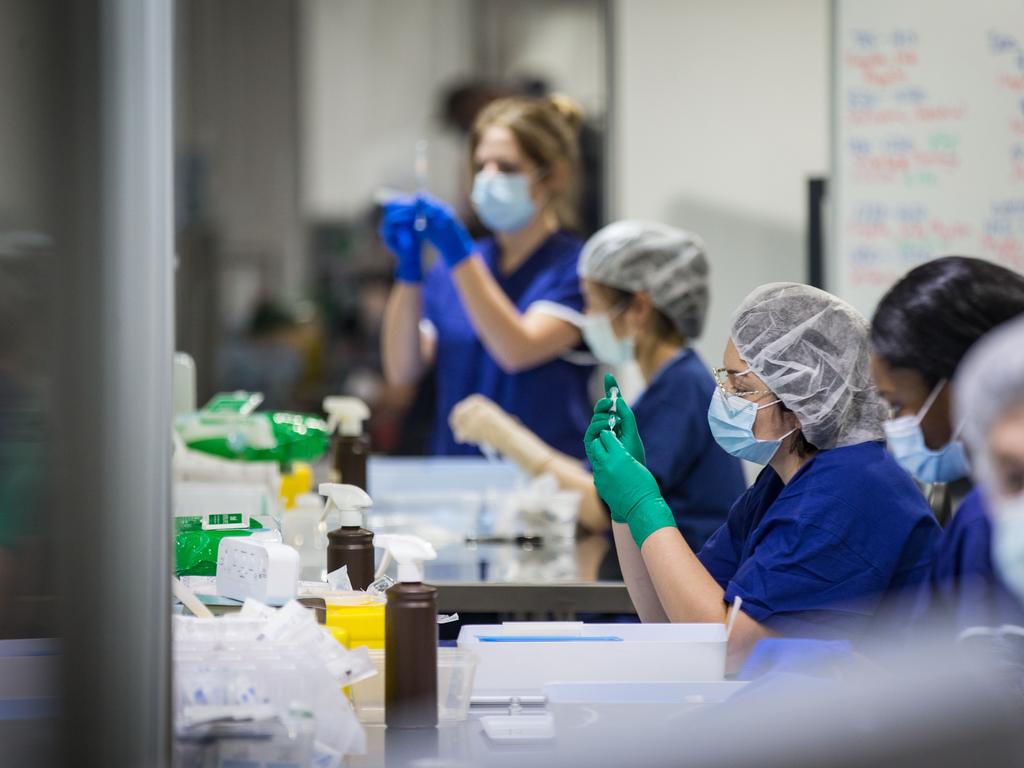
He said as much as he would like to vaccinate his patients earlier with their second jab, government guidelines prevented it.
“We’ve done people who are under 12 weeks if they’re travelling because that’s allowed, but if you’ve been given guidance, you try and stick to it, because it’s too hard to deviate from it, and you don’t want to be caught out,” he said.
University of NSW epidemiologist Professor Raina MacIntyre said in the middle of an outbreak, it was a huge disadvantage to wait three months to be fully vaccinated.
She also urged the government to start vaccinating children aged 12 and up.
Mr Hunt’s office said he would not act until his expert advisory committee called for the change.
This is even though the Australian Technical Advisory Group on Immunisation (ATAGI) advice about vaccine spacing was last delivered on February 24 — before the highly infectious Delta variant emerged.
“Medical advice is provided by ATAGI and the TGA,” the spokesman said.
A clinical study published in the British Medical Journal reporting on vaccine use in 17,000 people in the UK, Brazil, and South Africa found the AstraZeneca jab’s effectiveness was 82 per cent after a second dose in those with a dosing interval of 12 weeks or more.
If the two doses were given less than six weeks apart the efficacy was only 55 per cent.
Professor Booy said studies showed the effectiveness of the AstraZeneca vaccine would be slightly (around 10 per cent) less if the second dose was brought forward to eight weeks.




